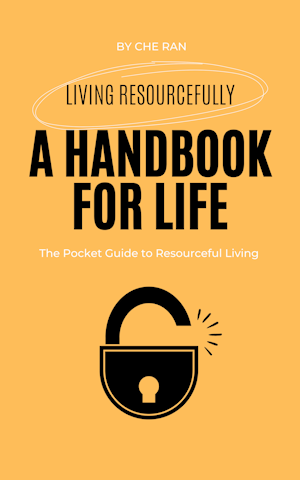Sir David Frederick Attenborough Quotes
The savage, rocky shores of Christmas Island, 200 miles south of Java, in the Indian Ocean. It's November, the moon is in its third quarter, and the sun is just setting. And in a few hours from now, on this very shore, a thousand million lives will be launched.
Sir David Frederick Attenborough
Our planet, the Earth, is, as far as we know, unique in the universe. It contains life. Even in its most barren stretches, there are animals. Around the equator, where those two essentials for life, sunshine and moisture, are most abundant, great forests grow. And here plants and animals proliferate in such numbers that we still have not even named all the different species. Here, animals and plants, insects and birds, mammals and man live together in intimate and complex communities, each dependent on one another. Two thirds of the surface of this unique planet are covered by water, and it was here indeed that life began. From the oceans, it has spread even to the summits of the highest mountains as animals and plants have responded to the changing face of the Earth.
Sir David Frederick Attenborough
Birds were flying from continent to continent long before we were. They reached the coldest place on Earth, Antarctica, long before we did. They can survive in the hottest of deserts. Some can remain on the wing for years at a time. They can girdle the globe. Now, we have taken over the earth and the sea and the sky, but with skill and care and knowledge, we can ensure that there is still a place on Earth for birds in all their beauty and variety if we want to and surely, we should.
Sir David Frederick Attenborough
It used to be said, that in places like this, nature eventually failed to support man, the truth is exactly the reverse, here man failed to support nature. Ten thousand years ago man regarded the natural world as divine, but as he domesticated animals and plants so nature lost some of its mystery and appeared to be little more than a larder that could be raided with impunity.
Sir David Frederick Attenborough

And this is where it went. In places all around the eastern Mediterranean the sea is separated from the mainland by strips of flat marshy land like this. Made up of the soil that once clothed the hills beyond. All this was deposited during the last 2000 years. This is the marsh that now separates the sea from the city of Ephesus. These ruined buildings mark the edge of the quay where once merchant ships lay moored. As the harbour died, so did the trade upon which the city's wealth was based, and so, well, ultimately did Ephesus itself. What was once one of the most splendid cities in the Roman Empire fell into decay and was abandoned.
Sir David Frederick Attenborough
And yet, today the harbour is silted up, most of the city lies buried beneath sand dunes and the land has become a desert. As the population had grown and more people wanted more fields, so more of the forest that once stood around the city was cut down, until eventually it was all gone. With no roots to hold the soil, and no attempt to conserve it, it was carried away by the wind and the rain.
Sir David Frederick Attenborough
I thought of the long ages of the past during which the successive generations of these things of beauty had run their course. Year by year being born and living and dying amid these dark gloomy woods with no intelligent eye to gaze upon their loveliness, to all appearances such a wanton waste of beauty. It seems sad that on the one hand such exquisite creatures should live out their lives and exhibit their charms only in these wild inhospitable regions. This consideration must surely tell us that all living things were not made for man, many of them have no relation to him, their happiness and enjoyment's, their loves and hates, their struggles for existence, their vigorous life and early death, would seem to be immediately related to their own well-being and perpetuation alone.
Sir David Frederick Attenborough
When I was a boy in the 1930s, the CO2 level was still below 300 parts per million. In 2006, it reached 362
Sir David Frederick Attenborough
Reptiles and amphibians are sometimes seen as simple, primitive creatures. That's a long way from the truth. The fact that they are solar-powered means that their bodies require only 10% of the energy that mammals of a similar size require. At a time when we ourselves are becoming increasingly concerned about the way in which we get our energy from the environment and the wasteful way in which we use it, maybe there are things that we can learn from "life in cold blood."
Sir David Frederick Attenborough
Reptiles and amphibians are sometimes thought of as primitive, dull and dimwitted. In fact, of course, they can be lethally fast, spectacularly beautiful, surprisingly affectionate and very sophisticated.
Sir David Frederick Attenborough
An eye from another world; a smell-detector, investigating the path ahead. We don't often see a snail that way, and that's because we've only recently had the tiny lenses and electronic cameras that we need to explore this miniature world. But when we meet its inhabitants face to face, we suddenly realise that their behaviour can be just as meaningful to us as the behaviour of many animals more our own size.
Sir David Frederick Attenborough
Birds were flying from continent to continent long before we were. They reached the coldest place on Earth, Antarctica, long before we did. They can survive in the hottest of deserts. Some can remain on the wing for years at a time. They can girdle the globe. Now, we have taken over the earth and the sea and the sky, but with skill and care and knowledge, we can ensure that there is still a place on Earth for birds in all their beauty and variety if we want to and surely, we should.
Sir David Frederick Attenborough
Birds are the most accomplished aeronauts the world has ever seen. They fly high and low, at great speed, and very slowly. And always with extraordinary precision and control.
Sir David Frederick Attenborough
Ever since we arrived on this planet as a species, we've cut them down, dug them up, burnt them and poisoned them. Today we're doing so on a greater scale than ever [] We destroy plants at our peril. Neither we nor any other animal can survive without them. The time has now come for us to cherish our green inheritance, not to pillage it for without it, we will surely perish.
Sir David Frederick Attenborough
Midwinter, and the countryside is so still, it seems almost lifeless. But these trees and bushes and grasses around me are living organisms just like animals. And they have to face very much the same sort of problems as animals face throughout their lives if they're to survive. They have to fight one another, they have to compete for mates, they have to invade new territories. But the reason that we're seldom aware of these dramas is that plants of course live on a different time-scale.
Sir David Frederick Attenborough






